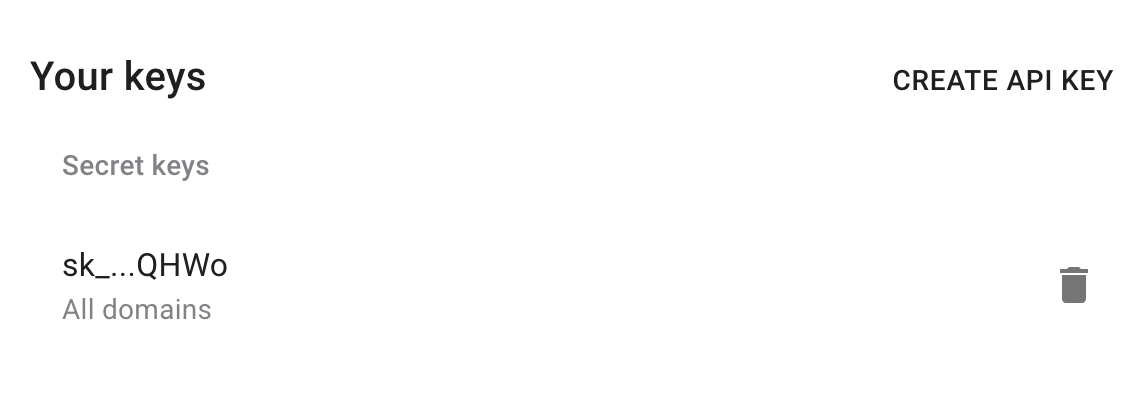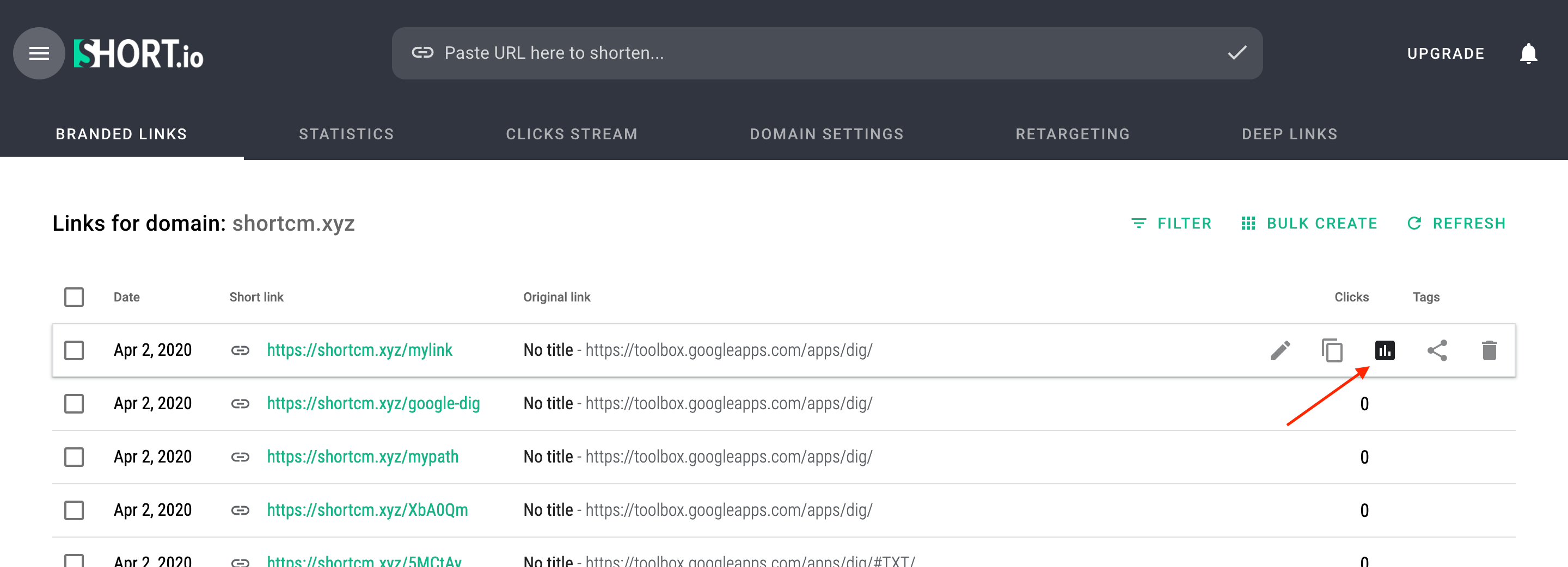Archiving a short URL
The archived URL will be hidden from the dashboard, but will still work
The instruction below shows how to archive the existing URL.
1) Get your API key here: https://app.short.io/settings/integrations/api-key
- Click "Create API key".
- Add a Secret key.

2) Copy an ID of a short link you want to archive.
- Open the statistics of the short link.
- Copy the link ID.


3) Install prerequisites for requests.
pip install requestsnpm install --save axiosNow everything is ready to run the following snippet. It will archive a short URL.
4) Create a file: filename.py/ .js/ .rb. Use the code snippet below.
Please, replace LINK_ID with appropriate value.
import requests
url = "https://api.short.io/links/archive"
import json
payload = json.dumps({"link_id":LINK_ID})
headers = {
'content-type': "application/json",
'authorization': "<<apiKey>>"
}
response = requests.request("POST", url, data=payload, headers=headers)
print(response.text)const axios = require('axios');
const data = {
"link_id":LINK_ID
};
const options = {
headers: {
'content-type': 'application/json',
authorization: '<<apiKey>>'
}
};
axios.post('https://api.short.io/links/archive', data, options)
.then(function (response) {
console.log(response.data);
}).catch(function (response) {
console.log(response);
});require 'uri'
require 'net/http'
require 'openssl'
require 'json'
url = URI("https://api.short.io/links/archive")
http = Net::HTTP.new(url.host, url.port)
http.use_ssl = true
http.verify_mode = OpenSSL::SSL::VERIFY_NONE
request = Net::HTTP::Post.new(url)
request["content-type"] = 'application/json'
request["authorization"] = '<<apiKey>>'
request.body = JSON.generate({"link_id":LINK_ID})
response = http.request(request)
puts response.read_body5) Launch the file.
python filename.pynode filename.jsruby filename.rb6) JSON Response (link is archived).
Once you run the code, you will see the response.
{
"success":true
}Updated about 2 months ago
